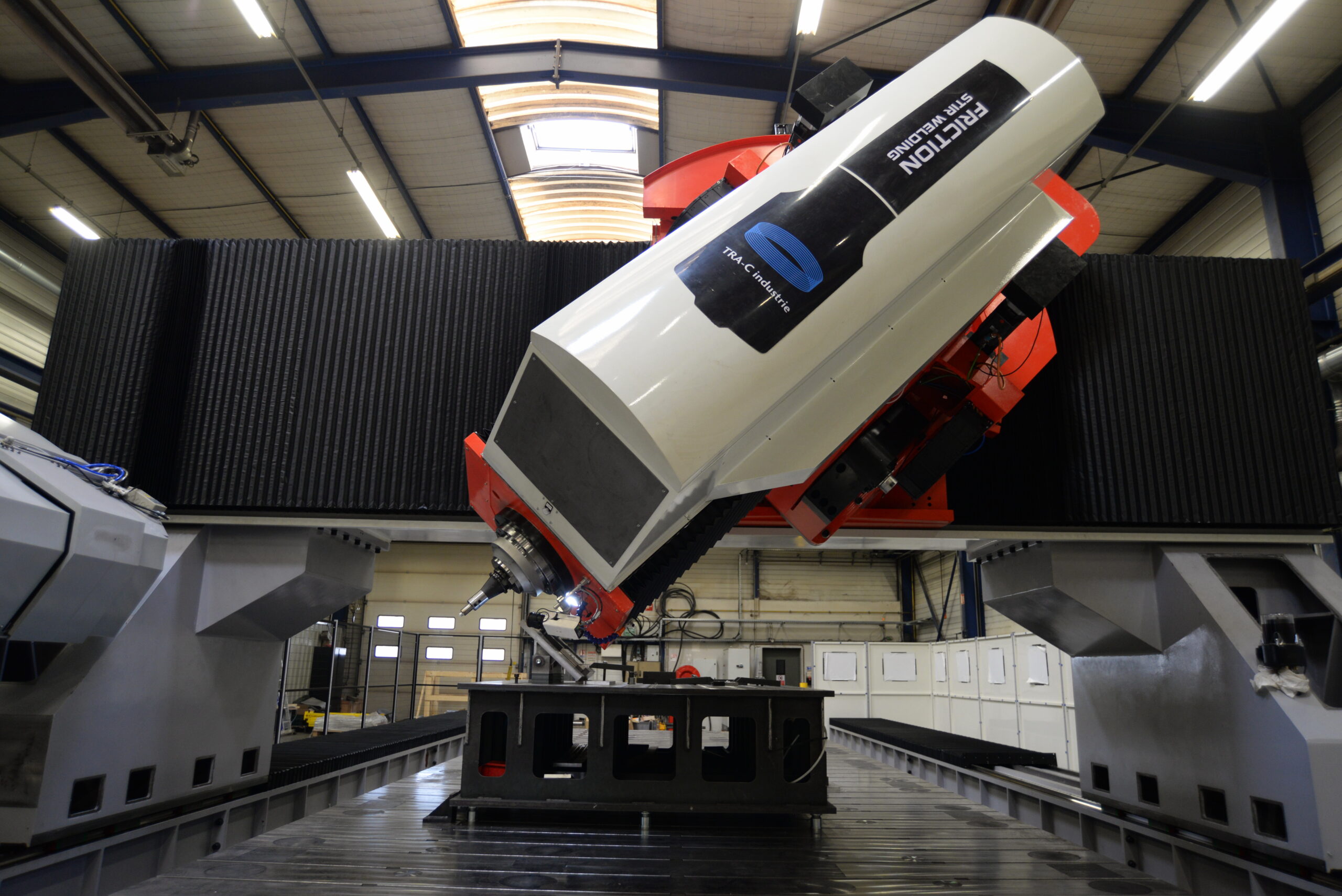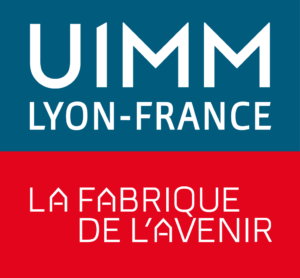What are the ecological benefits of friction stir welding?
The ecological benefits of friction stir welding only represent a fraction of the many advantages of this innovative technology. However, given the environmental challenges facing the industrial sector, it is one of the most popular processes!
Greenhouse gas emissions, water pollution, waste disposal, excessive consumption of natural resources… Today, the welding industry faces a host of challenges in meeting society’s changing needs.
To address these issues, it is essential that companies invest in green technologies and develop sustainable and efficient solutions. This is particularly true of FSW (friction stir welding), an environmentally-friendly welding process...
But what are the disadvantages of traditional welding processes? And what are the advantages of FSW in terms of sustainable development? In this article, TRA-C industrie tells you more about the ecological benefits of friction stir welding.

What are the drawbacks of fusion welding processes?
Fusion welding processes, such as arc, TIG, MIG or laser welding, are widely used in metallurgy because of their efficiency and versatility. In spite of this, they have a number of drawbacks from an environmental point of view:
- Emissions of toxic gases and fumes: the melting of metals primarily releases gases, fumes, metal oxides, fine particles and volatile compounds. These fumes contain hazardous substances such as lead, zinc, cadmium and manganese. They are harmful to human health and the environment;
- Energy consumption: fusion welding also requires extremely high temperatures. It involves significant energy consumption, generally from non-renewable sources. This consumption contributes to the carbon footprint of the process;
- Waste production: conventional welding processes also generate residues, waste flux and unused electrodes. The management and disposal of this waste generates environmental problems if it is not properly treated;
- Use of chemicals: these welding techniques often require the use of fluxes, coatings and shielding gases (such as argon, helium or carbon dioxide). These chemicals have a negative impact on the environment, particularly in the event of leakage;
- Noise pollution: fusion welding is a noisy activity. It can therefore be particularly annoying in densely populated urban or industrial areas;
- Fire and safety risks: the high temperatures and sparks produced by traditional welding processes can increase the risk of fire. In such cases, it is customary to use flame-retardant chemicals, which are themselves harmful.
To reduce these environmental impacts, it is now essential for manufacturers to adopt responsible and environmentally-friendly welding processes. This is the case with friction stir welding technology…
The ecological benefits of friction stir welding
Absence of filler materials
FSW welding is a solid-state welding process, used to join heterogeneous alloys in a cold state. It is the combined action of the pressure exerted by the shoulder on the parts to be joined, the rotation of the pin which kneads the material, and the advance of the tool along the weld joint that fuse the elements together.
Among the ecological benefits of friction stir welding is the absence of filler materials. Electrodes, shielding gas and other consumables are not needed to create the weld.
Additionally, there is no need to bring in additional metal in FSW. However, the manufacture of the filler metal alone accounts for 50% of the CO2 generated in traditional processes. FSW is therefore a more sustainable welding process.
The production of steel and aluminium, often used as filler metals, involves stages such as reduction, smelting and refining. But they also need to be transported from the factory to the welding site, which contributes to CO2 emissions.


No greenhouse gas emissions
Another advantage of this environmentally-friendly welding technology is the absence of toxic fumes usually produced when metals are melted. With FSW, the surfaces to be welded do not need to be prepared or stripped beforehand.
In traditional welding, on the other hand, parts are sometimes cleaned with solvents. When these products melt, they burn, releasing compounds that are harmful to the environment.
Finally, in fusion welding, it is common practice to use shielding gases, UV radiation or even electromagnetic fields to protect the parts to be welded from oxidation. This is not the case with friction stir welding, which is carried out solely by mechanical deformation…
Reduction of energy consumption
One of the other ecological benefits of friction stir welding is that it consumes less energy. In conventional welding, the temperatures needed to melt the metals require a lot of energy, sometimes reaching up to 1800°C.
FSW is a cold-welding technology. It is the plastic deformation caused by friction between the tool and the parts that allows the material to soften. Friction stir welding is therefore a responsible welding process.


Better weld quality
In friction stir welding, the weld bead is drawn directly into the material by mixing the metals. This process is known for producing high-quality, strong and durable assemblies...
The environmentally-friendly welding technology FSW reduces scrap and material wastage, as well as the extra work required to correct defects. It also enables compliance with regulations such as ISO 9001 or ISO 25239 for example.
Improved operator safety
The final advantage of FSW follows on from the previous ones. It relates to the safety of welders during operations. As the metals are joined by kneading, there is no projection of material, emanation of gas, smoke, UV rays or electromagnetic fields.
Friction stir welding machines also make it possible to automate tasks that are repetitive, tiring or of little interest to operators. They make work flow more efficient.


The ecological benefits of friction stir welding for a wide range of sectors
Because of the ecological benefits of friction stir welding, as well as its benefits in terms of quality, safety and budget, this process has many applications for manufacturers:
- The aerospace industry: FSW process is widely used because of the quality of its welds. It is used to assemble sheet metal for parts such as fuselage, wings, landing gear, satellite components, etc.;
- The rail sector: this environmentally-friendly welding process can also be used to weld wagon parts, underframes, train panels and so on. The welds comply with the EN 15085 standard;
- E-mobility: Friction stir welding is also very interesting for welding electric vehicle components. These include chargers, engine blocks, battery containers, heat exchangers, stiffened panels, etc.;
- The energy sector: FSW is particularly effective for the manufacture of wind turbine blades and masts, for example. But also, for the assembly of solar panels, storage tanks, pipelines, heat exchangers, etc;
- The construction sector: this sustainable welding technology is finally being used in the construction industry. In particular, it can be used to weld sheet metal for buildings, IPE beams for bridges, tanks and silos.
Take advantage from the ecological benefits of friction stir welding with TRA-C industrie
Cutting-edge sectors that want to meet both high technical standards and challenges of sustainable development can benefit greatly from the ecological benefits of friction stir welding.
Reliable, versatile, high-performance and accessible to a wide range of industries, this environmentally-friendly welding technology is now at the heart of corporate social responsibility (CSR regulations)…
As Europe’s leader in friction stir welding, TRA-C industrie supports SMEs, major groups and contractors in integrating the FSW process into their welding operations. We also help them to implement their projects, design their machines and train their operators.

With our technical design office and 9 production sites in France and Canada, we are at your side to optimise your assembly lines and produce high-quality, safe, more economical welds with low environmental impact!









